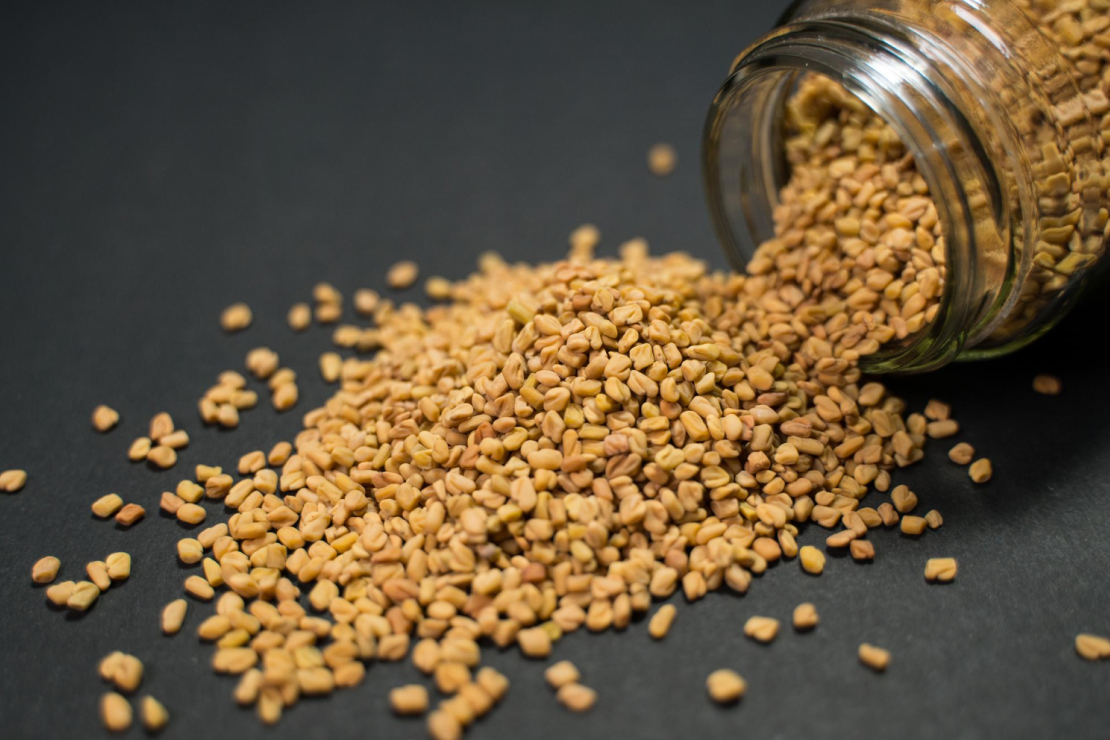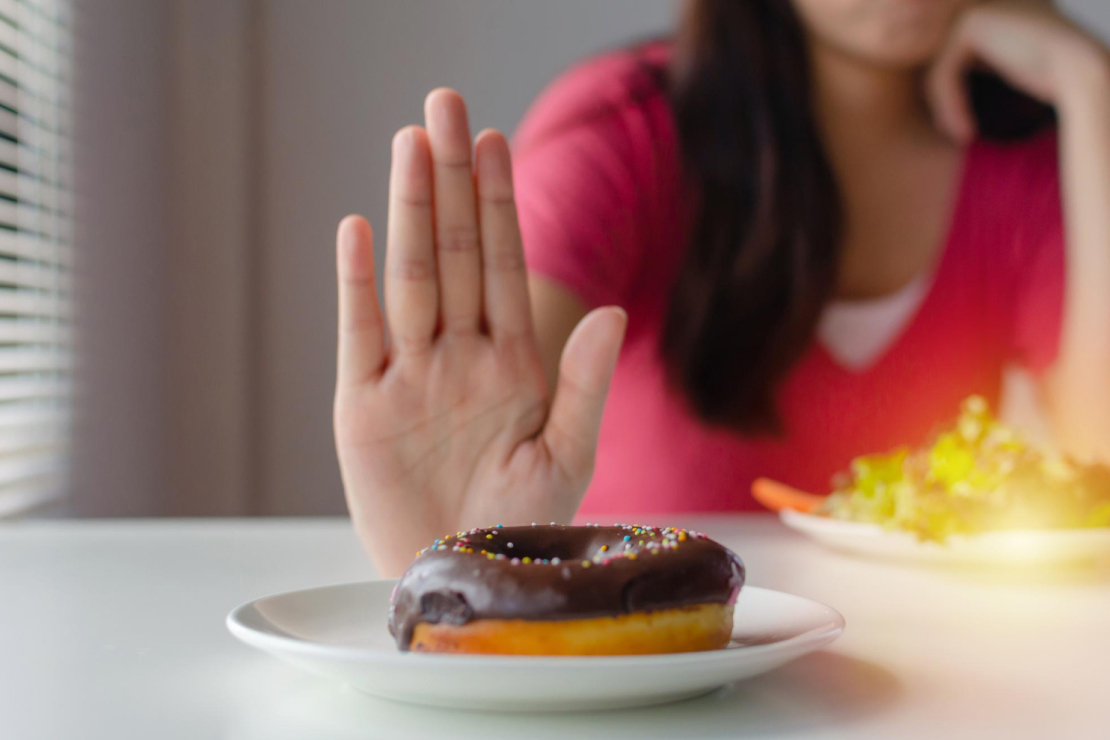Why You Crave Sugar at Night and How to Stop It Instantly
Discover the science behind nighttime sugar cravings and learn effective strategies to overcome them. From hormonal influences to practical solutions, master your evening eating habits.

Table of Content
Understanding Nighttime Sugar Cravings
Late-night sugar cravings are a common struggle that can significantly impact weight management and overall health. Understanding the science behind these cravings is the first step toward developing effective strategies to overcome them. Let's explore why these cravings occur and how to manage them effectively.
The Science Behind Evening Sugar Cravings
Several biological and psychological factors contribute to increased sugar cravings at night. Here's a comprehensive breakdown of the main triggers:
| Factor | Impact on Cravings | Time of Peak Effect | Management Strategy |
|---|---|---|---|
| Hormonal Changes | Significant | 8 PM - 11 PM | Balanced dinner, stress management |
| Cortisol Levels | High impact
Stress hormone peaks in evening | 6 PM - 8 PM | Meditation, relaxation techniques |
| Serotonin Production | Moderate impact
Natural decline in evening | 7 PM - 10 PM | Protein-rich snacks, tryptophan foods |
| Circadian Rhythm | High impact
Natural energy dip | 9 PM - 11 PM | Consistent sleep schedule, light exposure management |
| Daily Habits | Moderate impact
Learned behaviors | Variable | Routine adjustment, mindful eating |
7 Key Reasons for Nighttime Sugar Cravings
1. Hormonal Fluctuations
Your body's hormonal balance plays a crucial role in sugar cravings. As the day progresses, various hormones undergo natural fluctuations that can intensify your desire for sweet foods. The complex interplay between stress hormones, hunger signals, and satiety hormones creates a perfect storm for evening sugar cravings. Understanding these hormonal patterns can help you anticipate and manage cravings more effectively.
- Cortisol patterns
Natural evening decline triggers cravings30-50% drop from morning peakAffects blood sugar stability
- Insulin sensitivity
Decreases in the evening by up to 25%Peaks between 8-10 PMAffects glucose metabolism efficiency
- Leptin levels
Evening fluctuations affect satiety20% variation throughout the dayInfluenced by meal timing and composition
- Ghrelin production
Increases during typical eating times40% higher in evening for night eatersReinforces habitual eating patterns
2. Insufficient Daytime Nutrition
Poor dietary choices during the day create a cascade of metabolic effects that manifest as evening cravings. When your body doesn't receive adequate nutrition throughout the day, it compensates by triggering intense hunger and specific cravings at night. This pattern is particularly pronounced when key nutrients are missing from your daily intake, leading to both physiological and psychological hunger signals.
- Inadequate protein intake
Less than 0.8g per kg body weightAffects neurotransmitter productionLeads to unstable blood sugar
- Low fiber consumption
Below 25g daily recommendationImpacts gut hormone productionReduces satiety signals
- Irregular meal timing
Gaps longer than 4-5 hoursDisrupts metabolic rhythmTriggers compensatory eating
- Dehydration
Less than 8 glasses dailyOften mistaken for hungerAffects energy levels
3. Stress and Emotional Factors
Psychological elements significantly influence evening cravings, particularly as the day's stressors accumulate. The brain seeks quick comfort through sugar, which temporarily boosts mood-enhancing neurotransmitters. This emotional eating pattern becomes more pronounced in the evening when willpower is depleted and stress levels peak.
- Work-related stress
Peaks during evening hoursIncreases cortisol by 15-20%Triggers reward-seeking behavior
- Emotional eating patterns
Comfort seeking behaviorDopamine-driven rewardsForms neural associations
- Decision fatigue
Reduced willpower by day's end40% decrease in self-controlImpairs rational food choices
- Social influences
Evening entertainment habitsPeer pressure effectsCultural eating patterns
4. Sleep Deprivation
Poor sleep quality creates a vicious cycle of hormonal imbalances and increased cravings. Even one night of inadequate sleep can significantly alter your body's hunger and satiety signals. The brain compensates for low energy by seeking quick energy sources, particularly in the form of sugar, leading to intensified evening cravings.
- Disrupted hunger hormones
20-30% increase in appetiteGhrelin rises by 15%Leptin decreases by 15-20%
- Increased cortisol
15% higher after poor sleepPeaks later in the dayDisrupts glucose regulation
- Reduced insulin sensitivity
Up to 25% decreaseAffects glucose uptakeIncreases fat storage
- Altered brain reward systems
Enhanced food reward sensitivity50% stronger response to food cuesReduced prefrontal cortex control
5. Habitual Patterns
Learned behaviors create strong neural pathways that trigger automatic responses to evening cues. These habits become deeply ingrained through repetition and association, making them particularly challenging to break. Understanding the psychological and environmental triggers is crucial for developing effective intervention strategies.
- Screen time habits
Associated with mindless eatingIncreases eating duration by 30%Reduces awareness of portion sizes
- Evening routines
Conditioned responses to activitiesNeural pathway reinforcementTime-based hunger signals
- Social eating patterns
Family or roommate influencesShared snacking habitsSocial bonding through food
- Reward-based eating
End-of-day treats habitDopamine-driven behaviorEmotional association patterns
6. Blood Sugar Imbalances
Fluctuating blood sugar levels throughout the day create a biological drive for quick energy sources in the evening. These imbalances can be particularly pronounced if your eating patterns include high-glycemic foods or irregular meal timing. Understanding and stabilizing blood sugar is key to reducing nighttime cravings.
- Reactive hypoglycemia
Post-meal blood sugar drops20-30% below baselineTriggers immediate hunger
- Insulin resistance
Impaired glucose regulationAffects 30-40% of adultsWorsens evening metabolism
- Meal timing issues
Long gaps between mealsBlood sugar volatilityHormonal disruption
- High-glycemic food choices
Rapid blood sugar fluctuationsCreates craving cyclesAffects insulin sensitivity
7. Nutrient Deficiencies
Specific nutrient gaps can significantly increase your susceptibility to sugar cravings. These deficiencies affect various metabolic processes, hormone production, and neurotransmitter function. Addressing these nutritional gaps can help reduce the intensity and frequency of nighttime cravings while supporting overall health.
- Magnesium deficiency
Common in 45% of populationAffects glucose metabolismImpacts stress response
- Chromium inadequacy
Affects blood sugar regulation25-30% below recommended levelsCrucial for insulin function
- Zinc deficiency
Impacts taste perceptionAffects 17-20% of adultsAlters appetite signals
- B-vitamin shortages
Affects energy metabolismCommon in restricted dietsImpacts neurotransmitter production
Instant Solutions to Stop Sugar Cravings
Immediate Actions
When sugar cravings strike, having a toolkit of quick, effective interventions can make the difference between giving in and staying on track. These science-backed strategies work by addressing both the physiological and psychological aspects of cravings, providing immediate relief while supporting your long-term health goals.
- Drink water
16oz can reduce cravings within 15 minutesAdds stomach volume and satietyHelps regulate blood sugar
- Take a short walk
10 minutes reduces craving intensity by 50%Increases endorphin productionImproves insulin sensitivity
- Practice deep breathing
5 minutes reduces stress hormonesActivates parasympathetic responseImproves decision-making ability
- Brush teeth
Changes taste perception immediatelyCreates psychological barrierSignals end of eating window
- Use aromatherapy
Peppermint reduces cravings by 35%Vanilla decreases sweet cravingsCinnamon stabilizes blood sugar
Smart Substitutions
Having a repertoire of healthy alternatives ready when cravings hit can help satisfy your sweet tooth while providing nutritional benefits. These substitutions are designed to address the underlying causes of cravings while satisfying both the physiological and psychological needs that trigger them.
- Fresh fruit
Natural sugars plus fiberContains craving-reducing mineralsProvides antioxidant benefits
- Protein-rich snacks
Stabilizes blood sugar for 2-3 hoursIncreases satiety hormonesSupports neurotransmitter production
- Herbal teas
Zero calories, satisfying warmthContains beneficial compoundsHydrates and relaxes
- Magnesium-rich foods
Dark chocolate, nuts, seedsSupports glucose metabolismReduces stress response
- Fermented foods
Supports gut-brain axisBalances blood sugarProvides satisfying flavors
Long-Term Prevention Strategies
Implement these strategies to prevent future cravings:
| Strategy | Implementation | Expected Timeline | Success Rate |
|---|---|---|---|
| Balanced Meals | Include protein, fiber, healthy fats
Every 4-5 hours | 1-2 weeks | 75-80% |
| Sleep Hygiene | 7-9 hours nightly
Consistent schedule | 2-3 weeks | 70-85% |
| Stress Management | Daily relaxation practice
Meditation, yoga, breathing | 3-4 weeks | 65-75% |
| Evening Routine | Structured activities
No food 2-3 hours before bed | 2-3 weeks | 80-90% |
Frequently Asked Questions
Why do sugar cravings get worse at night?
- Natural cortisol decline
- Decreased willpower
- Hormonal fluctuations
- Habitual patterns
Can lack of sleep cause sugar cravings?
- Increased hunger hormones
- Reduced impulse control
- Altered brain reward systems
- Disrupted metabolism
How long does it take to break sugar cravings?
- Initial adjustment: 3-5 days
- Habit formation: 2-3 weeks
- Long-term adaptation: 1-2 months
- Individual variation exists
What nutrients help reduce sugar cravings?
- Magnesium: Supports blood sugar regulation
- Chromium: Enhances insulin sensitivity
- B vitamins: Improves energy metabolism
- Zinc: Affects taste perception
"Understanding and managing nighttime sugar cravings is crucial for maintaining healthy eating habits and achieving your wellness goals. With the right strategies and knowledge, you can overcome these cravings and establish better evening routines."
The Bottom Line
Nighttime sugar cravings are a complex interplay of biological, psychological, and environmental factors. By understanding their root causes and implementing both immediate and long-term strategies, you can effectively manage these cravings. Remember that sustainable change takes time, and it's okay to progress gradually. Focus on developing healthy habits and creating an environment that supports your goals.
The key to success lies in finding a balanced approach that works for your lifestyle while addressing the underlying factors that trigger your cravings. With consistency and patience, you can develop a healthier relationship with evening eating habits and improve your overall well-being.
Start Your Health Journey Today
Download Macro Tracking AI and take control of your nutrition with the power of artificial intelligence.
Download on App Store

